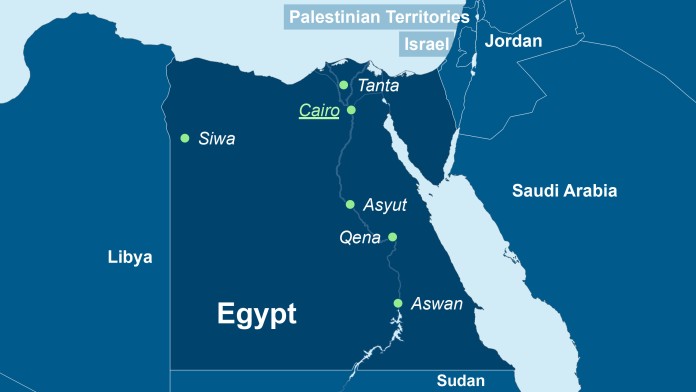
Focus on employment promotion and vocational training
With over 100 million inhabitants, Egypt is the largest country in the Arab world in terms of population. The Nile is the lifeline: 9 out of 10 Egyptians live along the Nile and only 5% of the country's surface is inhabited at all. Not only since the upheavals of 2011 Egypt continues to face considerable challenges. In recent years, efforts to implement structural reforms have been stepped up to create the conditions for economic growth, budget consolidation and employment. In addition to mitigating the effects of reforms on the poorer population, the most urgent problems include high (youth) unemployment and the provision of infrastructure for the rapidly growing population. Germany has been involved in Financial Cooperation in Egypt since 1963.
KfW Office Cairo
Director KfW Office: Dr Christoph Schäfer
03 Hassan Sabry Street, Zamalek
11561 Cairo
Arab Republic of Egypt
+20 2 2735 9607
Fax: +20 2 2736 3709